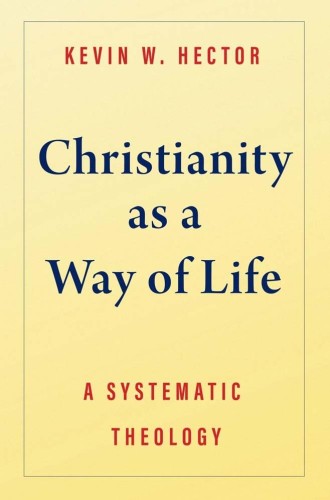A boldly nonpropositional systematic theology
Kevin Hector presents theology as itself a practice of faith.

Christianity as a Way of Life
A Systematic Theology
When I was in Bible college, Wayne Grudem’s Systematic Theology was the one-stop shop for any theology course. If you needed to know about sin, there was a section for that; there were also sections on redemption, God, salvation, hell, and more. Systematized into distinct categories and argued through a self-affirming logic, the book reduced Christianity to a set of propositional truths that promised salvific knowledge of God to those who would affirm them. It appeared to hold the world of theology in its pages, doctrine by doctrine.
Kevin Hector boldly breaks out of this propositional mold with an accessible, single-volume systematic theology that aims “to offer a clear, understandable interpretation of Christianity” while highlighting “some of the wisdom that Christianity, so interpreted, has to offer about how to conduct one’s life well” amid the realities of the world. Christianity conveys such wisdom, Hector believes, through a constellation of spiritual practices that transform the believer’s way of being in and perceiving the world, ultimately orienting the believer toward “that which is taken to be ultimate—ultimately true, ultimately good, or ultimately important.” This transformation changes not only our actions but our very self: our passions, loves, desires, thoughts, and perception.
Christianity as a Way of Life is structured around three sets of practices: those that orient us to God, those that transform our action in the world, and those that influence our way of loving and being with others. Theology belongs in both the believer’s life and the academy, Hector suggests, because it offers two epistemic goods: wisdom and understanding.




